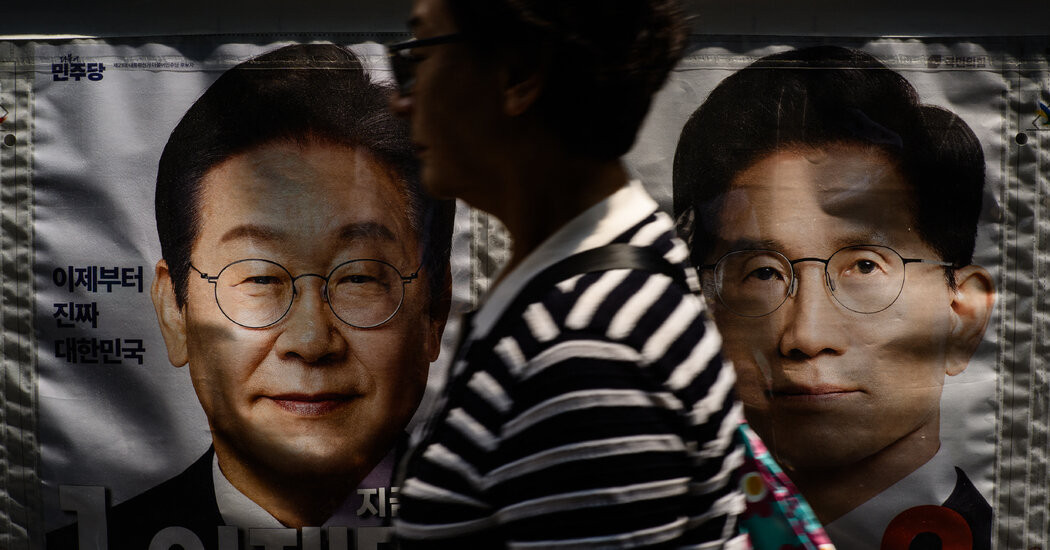

Both of the main candidates support the alliance with the United States, but the front-runner favors diplomacy with North Korea and China to improve strained relations.
If the front-runner for the presidential election on Tuesday wins, South Korea is likely to enter a major course correction in its diplomacy to improve ties with North Korea and China.
South Korea’s relations with North Korea and China became increasingly strained under former President Yoon Suk Yeol, who was expelled from office in April following his short-lived imposition of martial law. Under Mr. Yoon, South Korea became more confrontational toward North Korea, shunning dialogue and encouraging the spread of outside information into the isolated country. North Korea abandoned its long-held policy of supporting reunification with South Korea, redefining the South as an enemy that must be subjugated, if necessary, with its nuclear weapons.
Mr. Yoon also disturbed a delicate balance South Korea had always struggled to maintain between Washington and Beijing. While China emerged as South Korea’s biggest trade partner in the post-Cold War decades, the United States remained as its only military ally. Mr. Yoon not only openly sided with the United States in the strategic competition between Washington and Beijing, but he also antagonized Beijing by raising suspicions that it has sent spies to South Korea and may have manipulated its elections.
“The relations between South Korea and China became the worst ever,” said Lee Jae-myung, the candidate most likely to win the presidential election according to pre-election polls. He has criticized Mr. Yoon’s policy toward China. “I will stabilize and manage the relations,” he said.
In many ways, the foreign policy platforms of Mr. Lee and his main rival, Kim Moon-soo, share similarities.